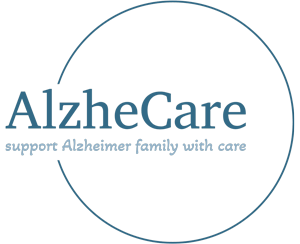When I became my grandmother’s primary caregiver, I quickly learned that theoretical knowledge wasn’t enough. Here are the practical, hands-on strategies that have made the biggest difference in our daily lives.
Practical Tips for Caregivers

Daily Life:
Real Solutions from Our Family's Experience
Morning Routine Strategies
We discovered that mornings set the tone for the entire day:
- Start with gentle wake-ups using soft light and familiar voices
- Allow extra time to prevent rushing
- Keep the routine consistent and simple
- Use visual cues for each step
- Celebrate small victories
Mealtime Solutions
Food became both a challenge and an opportunity for connection:
- Serve meals at consistent times
- Use contrasting colors for plates and food
- Offer finger foods when utensils become challenging
- Maintain a calm, social atmosphere
- Address hydration throughout the day
Managing Personal Care
Maintaining dignity while providing necessary care required:
- Breaking tasks into small, manageable steps
- Using simple, clear instructions
- Offering limited choices to maintain independence
- Creating a spa-like atmosphere for bathing
- Keeping favorite personal care items visible
Home Safety Adaptations
Our home modifications focused on:
- Installing grab bars in strategic locations
- Removing trip hazards and simplifying spaces
- Using motion-sensor lights
- Securing dangerous items and medications
- Making frequently used items easily accessible
Transportation and Outings
We learned to:
- Plan outings during best times of day
- Keep trips short and purposeful
- Bring familiar comfort items
- Have a backup plan ready
- Choose quiet, less crowded destinations
Managing Difficult Moments
When challenging behaviors arise, we:
- Stay calm and avoid arguments
- Use distraction and redirection
- Identify and address triggers
- Maintain a reassuring presence
- Keep a log to identify patterns
Documentation and Organization
Staying organized helps prevent crisis situations:
- Keep medical records easily accessible
- Maintain medication logs
- Document daily patterns and changes
- Create emergency contact lists
- Store important documents securely

Navigating Treatment Options:
Our Experience with Care Teams
Finding the right combination of medical support and community resources has been crucial in our family’s journey. Here’s what we’ve learned about building an effective care network.
Current Treatment Approaches
Working with healthcare providers, we’ve learned about:
- Available medication options
- Clinical trial opportunities
- Alternative therapies
- Monitoring effectiveness
- Managing side effects
Building Your Care Team
Essential professional supports include:
- Primary care physician
- Neurologist
- Geriatric care manager
- Physical therapist
- Occupational therapist
- Mental health professional
Community Resources
We’ve benefited from:
- Local support groups
- Adult day programs
- Respite care services
- Home health agencies
- Transportation services
Coordinating Care
Effective management requires:
- Regular team meetings
- Clear communication channels
- Shared care plans
- Emergency protocols
- Ongoing assessment
